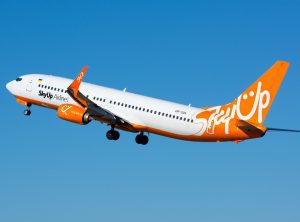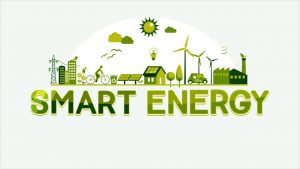
Foreign Minister of Ukraine Dmytro Kuleba has offered President of the American Chamber of Commerce in Ukraine (ACC) Andy Hunder and Executive Director of the European Business Association (EBA) Anna Derevyanko cooperation to develop trade and attract investment, the press service of the ministry said. “In the United States, Asian countries, and EU countries, the protection of internal business abroad, the development of trade, and the attraction of investments are some of the key functions of the foreign ministries. Now we are creating such an effective system of economic diplomacy in Ukraine. I would like to invite the leading Ukrainian business to unite forces,” Kuleba said during a video conference on Tuesday.
Kuleba also told about the relaunch of the Council of Exporters and Investors under the Ministry of Foreign Affairs. A meeting of the members, 80% of whom were reelected, is scheduled for May 21. Participants will be organized according to industry principles and will develop a joint work plan for the year.
The minister also shared with Hunder and Derevyanko his vision of cooperation between the diplomatic system and business, which will fill the agenda of relations with other countries with real cooperation projects, liberalize trade, expand the geography of exports, and attract investment in Ukraine.
Kuleba believes that successful Ukrainian business is also able to play a key role in establishing an effective system of economic diplomacy. It is, in particular, about professional expert assessment, attracting business to diplomatic education, and conducting special trainings and courses.
Derevyanko and Hunder, in turn, expressed gratitude for the initiative, which, in their opinion, is able to bring cooperation between business and diplomacy to a new level and contribute to the protection of Ukrainian economic interests. For their part, they confirmed their readiness to cooperate under the Council of Exporters and Investors, as well as in the development of an assessment system and diplomatic education.The parties paid special attention to the subject of encouraging foreign companies that transfer production from other regions of the world closer to sales markets, to locating production in Ukraine.
ACC, EBA, FM, INVESTMENTS

For the second year of flights, SkyUp Airlines operated 10,900 flights and carried more than 1.7 million passengers, doubling its results for 2019 (5,200 flights, 870,000 passengers).
According to the company’s press service, the five most popular destinations for scheduled flights were Tbilisi (Georgia), Barcelona (Spain), Batumi (Georgia), Larnaca (Cyprus), Alicante (Spain). At the same time, charter flights are most carried out to Sharm el-Sheikh, Hurghada (Egypt), Monastir (Tunisia), Antalya (Turkey), and Tivat (Montenegro).
Over the year, the airline’s flight program expanded from 31 to 45 scheduled and from 15 to 74 charter domestic and international destinations. However, the company notes that due to the introduction of quarantine, the launch of more than 20 regular destinations has been postponed.
At the same time, in March-May 2020, due to the introduction of quarantine, SkyUp completed more than 150 irregular commercial special flights, returning home more than 26,000 people.
In addition, during quarantine, the airline launched a new line of business – freight transportation. For these purposes, the carrier converted nine aircraft from its fleet and, since April, has already completed about 100 flights, transporting mainly medical goods.
Currently, SkyUp is preparing to launch its own handling department to improve the quality of service for the airline’s passengers at Boryspil Airport.

Ukraine increased electricity exports by 15% (by 319.4 million kWh) in January-April 2020 compared to the same period in 2019, to 2.449 billion kWh, the Ministry of Energy and Environment Protection has told Interfax-Ukraine. Electricity supplies from the Burshtyn thermal power plant (TPP) energy island to Hungary, Slovakia and Romania increased by 24.7% (by 351.2 million kWh), to 1.772 billion kWh.
Electricity supplies to Poland increased by 24.2% (by 106.4 million kWh), to 546.7 million kWh.
Electricity supplies to Moldova amounted to 130.3 million kWh, which is 51.5% (138.2 million kWh) less than in January-April 2019.
Ukrainian electricity was not exported to Belarus and Russia.
However, electricity exports fell by 60% in April 2020 compared with April 2019 (by 355 million kWh), to 237.9 million kWh.
Thus, Ukraine imported 1.705 billion kWh of electricity, in particular 1.012 billion kWh was supplied from Slovakia, some 408.6 million kWh from Hungary, some 152.3 million kWh from Belarus, some 78.3 million kWh from Romania and some 53.4 million kWh from Russia over the first four months.
In addition, under technological flows related to interconnected operation of the United Energy System of Ukraine with the energy systems of neighboring countries (taken into account under the contracts of state-owned enterprise Energomarket) some 19.25 million kWh of electricity were imported from Russia and some 250,000 million kWh were imported from Belarus over four months of 2020.
National bank of Ukraine’s official rates as of 22/05/20

Source: National Bank of Ukraine

The British company Regal Petroleum, part of the Smart Energy group, received an industrial influx of hydrocarbons from a new exploration well with a depth of 5,322 meters on Svyrydivske field (Poltava region).
“Well SV No. 54 that was spudded in October 2019 has already obtained the commercial inflow of natural gas and gas condensate at the level of 80,000 cubic meters/day and 5 tonnes/day respectively. Currently, the well testing is undertaken, while it is hooked-up to the gas processing facilities,” the company said on its website.
“Modern technologies of well drilling and casing, unique technical solutions, applied while development and testing of well No. 54, enabled to minimize the negative influence on productive reservoirs, retain their fluid loss properties, obtain strong hydrocarbons flow and put a well on production ahead of schedule,” Viktor Dudzych, the CTO of Smart Energy Group, commented.
“Earlier, in Q4, 2019, Smart Energy Group put well No. 119 on operation at Mekhedivsko-Golotovshchynske field in Poltava region. Currently, its average daily production rate is 140,000 cubic meters/day for gas and 25 tonnes/day for gas condensate,” the report says.